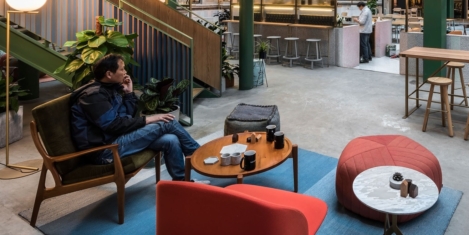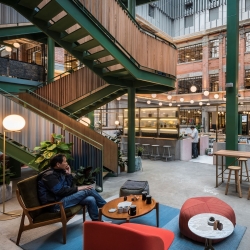To provide the best experiences, we use technologies like cookies to store and/or access device information. Consenting to these technologies will allow us to process data such as browsing behaviour or unique IDs on this site. Not consenting or withdrawing consent, may adversely affect certain features and functions.
The technical storage or access is strictly necessary for the legitimate purpose of enabling the use of a specific service explicitly requested by the subscriber or user, or for the sole purpose of carrying out the transmission of a communication over an electronic communications network.
The technical storage or access is necessary for the legitimate purpose of storing preferences that are not requested by the subscriber or user.
The technical storage or access that is used exclusively for statistical purposes.
The technical storage or access that is used exclusively for anonymous statistical purposes. Without a subpoena, voluntary compliance on the part of your Internet Service Provider, or additional records from a third party, information stored or retrieved for this purpose alone cannot usually be used to identify you.
The technical storage or access is required to create user profiles to send advertising, or to track the user on a website or across several websites for similar marketing purposes.
 Here’s an interesting exercise you may want to try. Off the top of your head and without thinking about it too much, write down the names of five iconic office furniture designs. The kind that your Aunt Sheila might recognise if she saw them but wouldn’t necessarily be able to name. When I did this recently while writing a piece about design trends, the products I came up with automatically were things like Frank Lloyd Wright’s desks for the Larkin building, Action Office, the 3107 chair (pictured), and Marcel Breuer’s Wassily Chair. (more…)
Here’s an interesting exercise you may want to try. Off the top of your head and without thinking about it too much, write down the names of five iconic office furniture designs. The kind that your Aunt Sheila might recognise if she saw them but wouldn’t necessarily be able to name. When I did this recently while writing a piece about design trends, the products I came up with automatically were things like Frank Lloyd Wright’s desks for the Larkin building, Action Office, the 3107 chair (pictured), and Marcel Breuer’s Wassily Chair. (more…)


































March 5, 2020
To many major firms, work is becoming just a game
by Eve Grau • Comment, Workplace